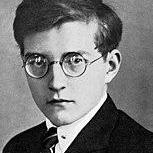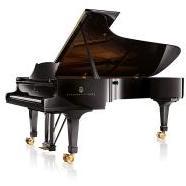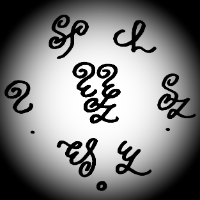Leaderboard
Popular Content
Showing content with the highest reputation on 05/28/2020 in all areas
-
I think that's relevant to your bit there. There's a lot of value in freedom, sure, but the whole idea of "we can do anything" is not a very pragmatic one. We can pick and choose from everything, yes, but at the end of the day you need to make choices and discard some things and keep others. Eventually, all those options need to disappear to leave just what actually ends up being done. I think the classic example of this is when people are learning orchestration and arrangement. This is because of the vast amount of options you have when you're doing those things, but it can be really hard to get a grip on what actually "needs to be done," rather than "could be done." Needs in this case being the individual's musical intuition/musical preference/etc. This is also why it's such a classic pedagogic trick to start people off with very strict rulesets for things that in reality have no rules, since it gives you a framework. Some would argue that it kind of shackles your mind to imaginary boundaries and eventually that's a problem, but that's still preferable to an Overchoice induced musical paralysis2 points
-
I feel that the questions you are asking are at the very heart of modern classical/ contemporary music. Right out of the gate I will say I find the music of Cage Schoenberg and Webern very unmusical and more academic than actually music, though of course that is just my opinion. I also see those experiments as why composers must go to absurd lengths to justify the choices in their compositions other than "it's what they wanted to write" not they must be inspired by some obscure ancient myth about the world being an egg in some birds stomach or some nonsense like that. I do believe that this has caused music to ascend to the "elite" areas. because most "modern" composers must produce an essay to explain their work other than the fact they had a really cool idea for a symphony. One composer I am glad who does not follow this pattern who I am surprised I have not seen on here is Alma deutscher. she is very unapologetic in her writing. and just writes what she wants. I hope this paves the way for the next generation of composers to truly write pieces for the sake of beauty rather than academia.2 points
-
I don't really know what happened to the steam of this idea, but since I moderate the competitions section, let's just start a poll so we can get everyone on board ASAP! I figured we should keep it theme based this time for participation.1 point
-
Hi guys, I'm new to Young Composer's. I just had one of my pieces recently recorded and I posted to Youtube. I'd love for you guys to take a listen. https://www.youtube.com/watch?v=kMBLrWS7mhg&feature=youtu.be I hope everyone is doing well and hanging in there in these times! J1 point
-
Sort of a Rachmaninoff-ish piece. It's much longer than anything I've written so far, and I sort of feel that the repeated A section at the end gets somewhat boring. Would like some feedback on how to expand this even more. It's usually the transitions that make it hard for me to write longer pieces. Thank you!1 point
-
hey everyone happy to have some feedback on this piece i wrote the other day, any constructive critisism welcomed https://soundcloud.com/jacob-ticli/reunite1 point
-
Because the nature of these topics are so personal, it'd be great to have more judges this time around, since it's less technical!1 point
-
Yes. I as a composer write music that, perhaps, appeals to the "masses" more than much of the contemporary music written (this is not designed to say that contemporary music holds little value, but let's face it, we see from Alma that audiences appreciate galant/romantic music. I don't write it for that purpose, but because it is the style that I like most. This discussion could easily turn into the atonality vs tonality; classical vs contemporary; subjective art argument, but, please, we've had that discussion many times before. How many people start their composing career writing modern music? Many of us here must have written something that is an imitation of a Classical style (You, Maarten, said that you did.) It was by chance that Alma happened to be prodigious. Add the fact that her parents have good musical connections, and she is set on a path for life, writing music in the style that she started in. As she grows, intakes more music, and gains more independence, she may easily change to write "new" music. But there is a pressure on her, and as you say it could be quite tragic.1 point
-
Artists have always pushed the envelope of their craft, and composers are no exception to that rule. We can surmise all day about "whence cometh these changes?" The bottom line is they stuck. Schönberg was an innovator, and such an influential one that three generations of composers have recognized his genius. Others have come after him, each taking his thought experiments further, or else devising their own. You or I may not like what his music sounds like, but we cannot deny his impact on Western classical music simply because we don't agree with his methods. We would do well to at least understand his methods and acknowledge them as the forerunners of modern Western classical music. People like Schönberg seem to happen only once a century or so. Perhaps classical music is due for its next major influence. Maybe that someone is you, or somebody else on this forum.1 point
-
Of course people are able to find their own voice. and I am aware music evolves. my wish is people write what they want over what academics push for them too write in the hopes of creating abstract art rather than art for art's sake. people should have the right to express themselves rather than be choked by having to explain their position in-depth. and explain why each note was placed where it was. I was asked by a teacher why I chose C minor for the key of the first movement of my concerto. I didn't have an answer, I just chose it because it's what I felt like. there was no abstract reason. I feel people are moving away from the "traditional style" because a lot of what can be composed has been perfected by various people. this of course does affect what people write Brahms was the first person to write a symphony some 50 years after Beethovens ninth if I remember correctly (don't quote me on that)1 point
-
This is usually what happens when children are involved. I don't really understand the point of being antagonist towards other people's tastes in music, plus, writing music in different styles and aesthetics is usually a powerful learning tool.1 point
-
I thank both of you for your criticism. It's really nice to see my "pieces" are seen as worth improving by others. In regards to Bradley Scarff's comment, the only thing I would say to "disagree" of sorts has to do with the fact that the fugue is virtually played by a machine, a soundfont engine, not a human. Which I think is partly the reason why it's difficult to distinguish individual voices to a great extent. Albeit that much syncopation in the alto voice perhaps wasn't so good in the end though. Also, the octave B's were intended to be a pedal note, and putting them in the bass wasn't any particular decision (even though I think I'm a bit biased towards unconsciously putting them in the bass). As for the parallels and voice crossing, to some extent I noticed them (at least the voice crossing, when the subject lies in the bass which is when it gets most noticeable), but I refused to change them due to the fact that they would ruin the countersubject and dissipate the harmony of the exposition. By the way, I'm not sure if those are the only parallels. Don't get me wrong, I'm not asking anyone to get to counting each parallel this fugue might have, I assume that would be just unbearable. Just wanted to know if Monarcheon just noticed those in the exposition or perhaps they might be all over the piece but counting them is thus not worth it. Thank both of you for your kind comments and appreciated criticism.1 point
-
1 point
-
Harmonic (bass+treble extensions) anticipations should be handled with caution. It can create ambiguity, but also leads to confusion when two successive chord can be effectively the same.1 point
-
Yeah, it's just literature. Artspeak meant to dazzle and confuse; to turn one against their instinctual reaciton. Indeed. I remember Alma popping up on some other forums and she triggered some serious boomer rage. The main criticism was the Greenbergian Jargon favorite of "it has nothing to say™" a meaningless statement unto itself, but these people can never seem to explain exactly how music is made better by these trite games of trying to figure out the puzzle of what the composer is "saying". The best part of that, I notice, is that it is generally the same people who believe "good and bad" are subjective, who will denounce composers as bad for not having enough "to say", because while quality is supposedly subjective, the "meaning" of a piece apparently is tangible, we're all just too dumb to see it, and therefore it must logically be objective... It's almost like those people are relativists when and where it's convenient for them1 point
-
You clearly have great skill with contrapuntal writing. which I wish I possessed myself. I have never been bold enough to actually write one. However if I may give a little bit of criticism. before the second entry of the theme I feel like there should be a slight pickup in pace, perhaps a run up so the entry of the counter subject isn't so jarring. at least it was for me personally. Another point which is a very personal one is a lot of the fugue just feels too busy it's difficult to detect the individual voices and the feel of the piece towards the middle feels less contrapuntal and more just accompaniment. especially when you get to the octave B's it feels very much like the second voice is just accompanying the first rather than actually being a second voice. though perhaps this was the effect you intended. Overall very good. look forward to hearing more music1 point





